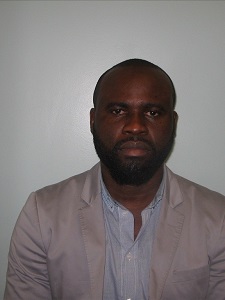Woman paid over a quarter of a million pounds to fraudster
|
A woman from Ealing who was tricked into believing an American marine had fallen in love with her and wanted to get married was scammed out around £260,000.
Isleworth Crown Court heard how Robinson Agbonifoayetan, 32 an engineer of Sutcliffe Road, Welling, Bexley posed as a diplomat called Christopher Williams, using a forged United Nations diplomatic card.
Two victims were manipulated to believe that another suspect pretending to be "General James Krulak" and "General James Raul" wanted to move to the UK and marry them.
Agbonifoayetan told the women he needed their help to transfer the marine's retirement fund - a box of money given to him by a family in Afghanistan - from Greece. He asked them to pay fees for its transfer, on the basis that they would be reimbursed once it was in the UK.
He, and an as yet unidentified suspect, met the two women in London a number of times, to collect some of the fees.
One of the victims - a woman in her 60s, from Ealing - paid around £260,000 over the course of six months after she was contacted by "General Krulak" via Skype.
A suspect posing as the general sent her photos of a soldier - supposedly him - and quickly built a rapport with her. He insisted on speaking to her several times a day, paying her countless compliments and seemingly confiding in her about tragic family events, like his parents and sister dying in a car crash.
Within days he talked of marrying her and introduced the idea of a box containing $8.5million, which he said he had been gifted by a family while serving in Afghanistan after he saved their lives.
He talked the victim into paying large fees for the transportation and protection of the box into bank accounts based in Ghana, before she met with Agbonifoayetan.
The victim used up her life savings, pawned jewellery, sold her car and took out loans to pay the spiralling costs before reporting her situation to police.
Detectives from the Met's fraud and cyber crime unit FALCON began investigating after the woman took the courageous step of coming forward. They arrested Agbonifoayetan at Heathrow airport on 17 December 2014, as he tried to leave the country on a flight to Nigeria.
Enquiries uncovered the second victim, a woman in her 50s from Devon, who was sold a similar line by "General James Raul" and handed over £22,000. Detectives are now seeking a compensation order to help the victims' recoup some of their money.
Agbonifoayetan was today sentenced for two counts of fraud by false representation after he admitted personally to defrauding women of almost £42,000 of the overall cash. He was sentenced to three years each for each count, to run concurrently.
Enquiries to identify other suspects involved in the scam continue.
Police believe that others may still be being scammed by Agbonifoayetan's associates and are appealing for anyone who has been a victim of this scam or a similar version to call Action Fraud on 0300 123 2040 or, if the crime is in action, call police on 999.
Investigating officer, Detective Constable Nick Curtis, of FALCON, said: "Romance scammers manipulate people, playing on their emotions before extorting them of more and more money.
"Anyone can fall foul of a romance scam, regardless of age or gender. Victims often feel too embarrassed to tell police or a trusted person. Sometimes they want to continue believing that the suspect is who they say they are, because the reality of being scammed out of thousands of pounds is too hard to contemplate.
"But I urge anyone who thinks they may have been a victim to report it to police now. You may feel that you are betraying someone you love by doing this, but if that person really is who they say they are, they would not be asking you for the money and they would understand your concerns about such requests."
DC Curtis has the following advice for people approached by potential love interests online:
1) See through the sob stories.
Con artists will tell you tales to pluck at your heartstrings, with a view to gaining your trust and sympathy. Sometimes they will ask for money to help them through a difficult situation. These are lies to get you to send them money.
2) Don't be fooled by a photo.
Anyone can send a picture which supports a story they are spinning. Scammers will quite often use the same story and send the same photo to multiple victims. You may be able to find evidence of the same scam posted on anti-fraud websites by other victims.
3) Keep your money in your bank account.
Never send money abroad to a person you have never met or do not know well, no matter how strongly you feel about them. No one who loves you will ask you to hand over your life savings and get into debt for them.
4) Question their questions.
Suspects will pay you a lot of compliments and ask you a lot of questions about your life, yet tell you very little themselves beyond a few select tales. Never disclose your personal details, such as bank details - this leaves you vulnerable to fraud.
5) Don't keep quiet.
Sometimes scammers will ask you to keep your relationship secret but this is just a ruse to stop you talking to someone who will realise you are being scammed. If you are concerned that you are being scammed, stop communicating with the fraudsters and report it to police immediately.
14th August 2015
